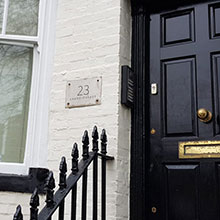
Why a hybrid of work-from-home and the office is the future
Rumours of the demise of the office have been dispelled after new research revealed that two thirds of UK workers want a hybrid model of working that allows them to spend between 1 and 4 days in the office each week.
The study of over 7,000 UK workers by global architecture, design, and planning firm Gensler suggests that those staff who split their time between the office and home working have the best experience. In particular they are more likely than those working exclusively at either home or the office to feel as if working during the pandemic has had a positive impact on their creativity and to feel greater overall job satisfaction.
At the same time Gensler’s UK Workplace Survey 2020 found those who had a choice about where they worked were more likely to think it reflected well on their employer. Giving employees the flexibility to better balance the demands of their job and personal life resulted in higher employee performance and productivity than those who spend all their time at the office or at home.
By using the office as a place to connect, collaborate and socialise, businesses can optimise performance and retain talent
Gensler’s UK Workplace Survey 2020
While workers enjoy the productivity boost, mental benefits and work life balance advantages of working from home, most want to have at least some presence in the office to work together with colleagues and for social interaction. By using the office as a place to connect, collaborate and socialise, businesses can optimise performance and retain talent, the Gensler study suggests.
“The world has changed,” says Julia Simet, Gensler Managing Principal. “But one thing is clear, 4 out of 5 respondents do want to return to the office in some way each week and 67% of the UK workforce want the flexibility to choose not only where they work but when they work there. Places of work will need to serve workers and organisations by bringing their people together and facilitating the connections that inspire creativity, innovation, learning, growth and belonging,” Simet adds.

Meanwhile neuroscientist Keiron Sparrowhawk, founder of cognitive workout app, MyCognition says employers should be mindful of the mental health implications of long term home working: “Working from home might be ideal for some, but can make many others feel very isolated, especially when for a long term basis.” This is particularly pertinent for people who are either “deep thinkers” or “creative types” and require face to face human contact to express their thoughts and feelings, Sparrowhawk adds.
Call on 01273 917977 or complete our enquiry form
enquire book a viewing

